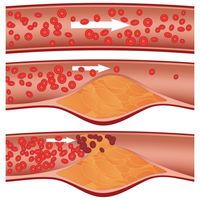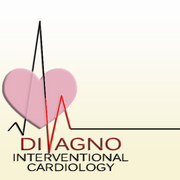A Guide to Coronary Heart Disease

Heart blockages, otherwise known as coronary heart disease, occur when the arteries responsible for pumping blood to the heart become narrow due to a buildup of plaque on their inner walls. According to the cardiac care team at DiVagno Interventional Cardiology, MD PA in Rochelle Park, NJ, if a heart blockage becomes too severe, it can prevent the heart from receiving the necessary amount of blood, which can cause it to become starved of oxygen consequently.
How Does Coronary Heart Disease Happen?
 It is believed that coronary heart disease begins when the inner layers of the coronary arteries are damaged. Plaque (a thick, waxy substance comprised of varying amounts of cholesterol, calcium, muscle cells, and connective tissue) can often start developing at these damaged sites as early as childhood. A few factors known to create this initial damage include smoking, high cholesterol, high blood pressure, high blood sugar (caused by diabetes or pre-diabetes), obesity, and blood vessel inflammation.
It is believed that coronary heart disease begins when the inner layers of the coronary arteries are damaged. Plaque (a thick, waxy substance comprised of varying amounts of cholesterol, calcium, muscle cells, and connective tissue) can often start developing at these damaged sites as early as childhood. A few factors known to create this initial damage include smoking, high cholesterol, high blood pressure, high blood sugar (caused by diabetes or pre-diabetes), obesity, and blood vessel inflammation.
Which Health Problems Are Caused By Coronary Heart Disease?
As plaque buildup increases on the artery walls, the reduction in blood flow can cause chest pain, known as angina. This type of pain is usually most notable whenever the person is active. Over time, the plaque can rupture and cause a blood clot to form on the surface of the plaque. If the clot grows large enough, it can completely block the flow of blood and oxygen to the heart, resulting in a heart attack.
How To Prevent Coronary Heart Disease
While not every coronary heart disease risk factor is avoidable, maintaining a healthy lifestyle is the best way for a person to reduce their chances of developing the condition or at least hastening its growth. To do this, they should exercise daily, follow a nutritious diet, and avoid becoming overweight.
To find out if you have high blood pressure, cholesterol, or another risk factor for coronary heart disease, schedule a cardiac screening with DiVagno Interventional Cardiology, MD PA by calling (201) 845-3535. You can also learn more about the other cardiac care services by visiting the website.
About the Business


